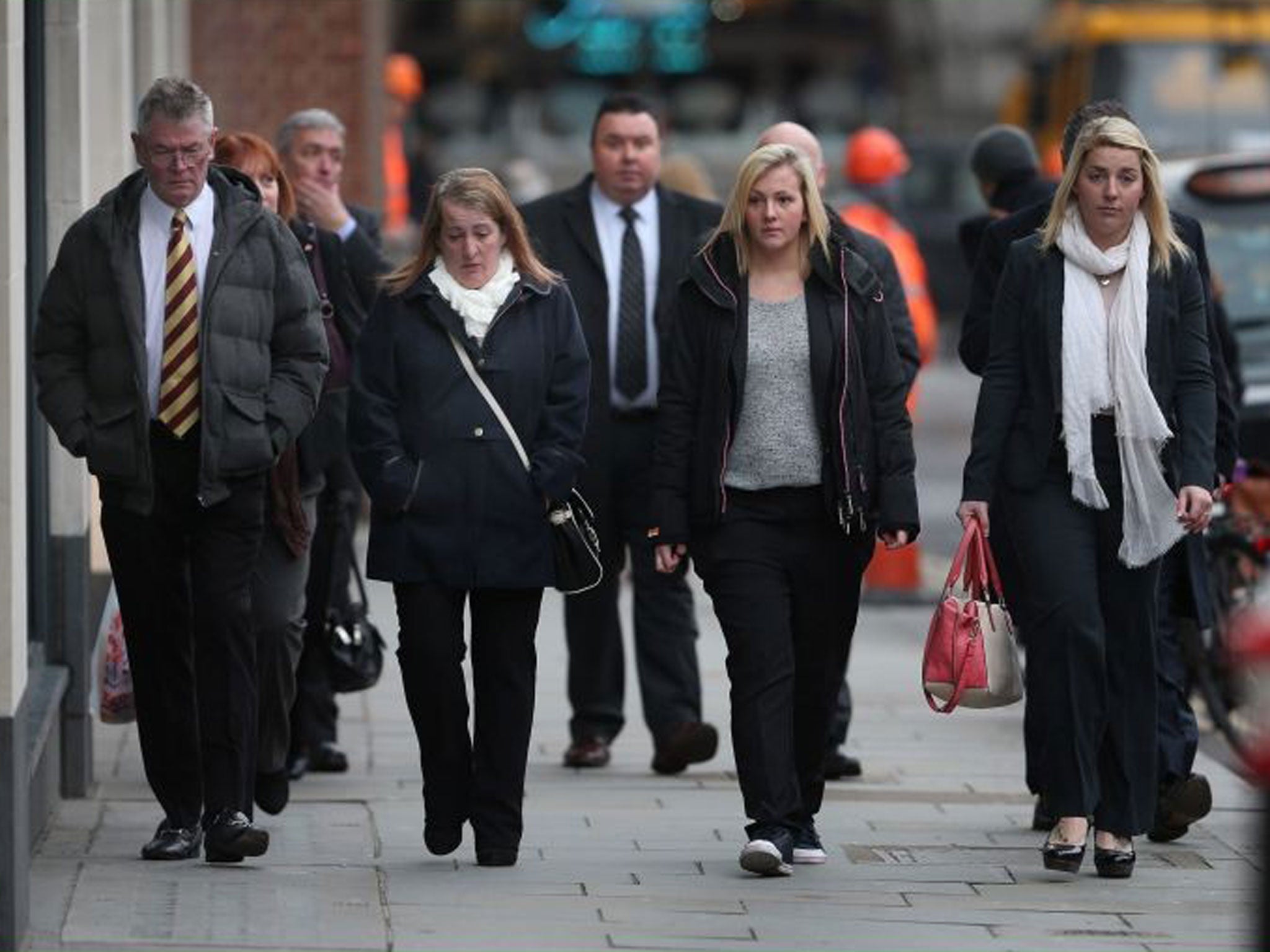Former government adviser believes warnings of extremist attacks were ignored
Concerns about jihadist action against British soldiers 'fell on deaf ears,' says Jahan Mahmood

A former government adviser has hit out at the security agencies and the way they assessed potential extremist threats on British soil in the months and years before the killing of Lee Rigby.
Days after the conviction of Michael Adebolajo and Michael Adebowale for the murder of the Fusilier Lee Rigby, Jahan Mahmood, a former adviser to the Office for Security and Counter-Terrorism (OSCT) in the Home Office, has decided to speak out over warnings of potential extremist attacks on British soldiers in the UK that he believes went unheeded.
Mr Mahmood, a historian and former lecturer at the University of Birmingham, specialising in the martial traditions of Afghan and Pakistani diaspora communities, had contact with the OSCT between 2009 and 2010 on a volunteer basis. He remembered one particular meeting on 27 January 2010 at a mosque in Birmingham, which involved five young Muslim men as well as the director of the OSCT, Charles Farr, and what Mr Mahmood called "another OSCT civil servant".
Mr Mahmood, who has worked with a number of government agencies, said he was asked to organise the event which was aimed at OSCT understanding some of the grievances of young men in the area.
"I suggested two of the young men and they brought three of the guys with them," said Mr Mahmood. He claimed that Mr Farr asked the young men about their "feelings and aspirations" in order to "extract as much as possible out of them and understand what drove them".
Mr Mahmood said: "One of the young men responded by saying he was angered by the death of women and children in Afghanistan and, if given half a chance, he would go abroad to fight British soldiers in Afghanistan. Another member of the group intervened and said: 'Why do you want to go abroad when you can kill them here?'"
While there is no evidence to suggest that any of the five men were involved in terror activities of any kind, the exchange remained lodged in Mr Mahmood's memory.
"While I was sitting there, I was actually quite concerned as I didn't expect that answer and I have never met these guys before," he said.
Mr Mahmood's motivation for setting up the meeting was to explore the link between gang and jihadi culture. He said that some of the men were drug users. He said he set up the meeting after one of the young men, called Sabeel, expressed concerns about the vulnerability of his peers and particularly the attraction of jihadist materials.
Mr Mahmood says he organised a subsequent meeting between Sabeel and Mr Farr. He believes, but admits he cannot be certain, that the discussion at the Birmingham mosque "fell on deaf ears" despite the five men's decision to discuss extremism and "core issues" with Mr Farr. "That these guys were brave enough to tell someone that senior should be congratulated," he said, acknowledging that he doesn't know for sure what resulted from the meeting.
In an email to a member of a military think tank, sent just after the attack on Lee Rigby in Woolwich in May, which he asked to be passed to General Sir David Richards, then Chief of the Defence Staff, Mr Mahmood said that he "can only hope" that the OSCT communicated his concerns "to army personnel".
He said that after the killing of Fusilier Rigby he wanted to make clear, as part of the Muslim community, that he had done all he could to alert authorities to the potential extremism discussed at the meeting.
After the Government come into power in 2010, there was a change in the Prevent strategy that began under Labour and was modified in 2011 to tackle radical ideology first and foremost, rather than what Mr Mahmood described as the more important problem of grievances within the Muslim community.
The view is shared by Alyas Karmani, the co-director of the Strategy to Reach, Empower and Educate Teenagers group, which ran a deradicalisation programme, focused on young recruits of Islamic extremists. The group has its funding cut with the political shift of the Prevent strategy. Mr Karmani said the current strategy was a "complete step backwards" which "if anything created more public protection risks". He added: "I think the reason we haven't had as many incidents as we potentially could have had is because the Muslim community is generally very resilient and it has been doing a lot internally to stem the tide of disaffection and radicalisation.
"We know from our work that there is a lot of bravado and machismo associated with all of this. We call them plastic jihadists. These are people who are desperately seeking jihad and they have all this posturing and gesturing that go along with that, but there are steps that need to be taken to prevent risks."
Last night, a Home Office spokesman said it did not comment on "individual cases or security matters". He added: "As part of our Prevent strategy, we engage with a wide range of faith institutions, civil society groups and individuals in order to challenge extremist ideology, help protect institutions from extremists and tackle the radicalisation of vulnerable people.
"The revised Prevent strategy launched in 2011 is much more tightly focused on high-priority areas at the greatest risk of extremism. Local authorities also work through programmes such as Channel to tackle the radicalisation of vulnerable people. Channel uses processes which also safeguard people at risk from crime, drugs or gangs."
Bookmark popover
Removed from bookmarks